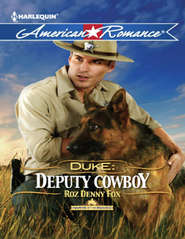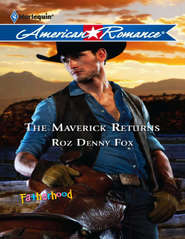По всем вопросам обращайтесь на: info@litportal.ru
(©) 2003-2024.
✖
Family Fortune
Автор
Год написания книги
2018
Настройки чтения
Размер шрифта
Высота строк
Поля
“Well, I hope they are lies. If Alain took over and moved Raymond into your job, I’d have to quit, no matter how many college loans are hanging over my head. People say that Ray dabbles in the black arts.” She gave a nervous laugh. “Is that true?”
Crystal rolled her eyes as April stopped to let her out at the hospital. “Is Ray smart enough to conjure up a spell? Oh, I’m not saying you shouldn’t keep your distance. He is a creep. For instance, I know he accesses Internet porno sites from his office.” She sighed. “André would love to remove his computer. Unfortunately Paul’s sixty percent of the voting stock isn’t sufficient to dislodge the other branch of the family. Not that Margaret would let that happen. She’s big on family sticking together.”
“How can somebody like Ray, born into that kind of privilege, turn out so rotten? I try never to be alone with him.” She lowered her voice. “I’ve heard he smacks women around.”
“We can only hope one of them will press charges someday. Hey, if I don’t scoot, you’ll be late for class. I appreciate the lift.”
After closing the car door and giving April a wave, Crystal jogged up the hospital steps. Ray was bilgewater, Alain a jerk. Her own dad wasn’t so hot, either. He’d let her down, and so had the only man she’d ever been serious about. Luckily she’d found out before the wedding that Ben Parker’s real interest had been her contacts in the jazz community—and that while they were engaged he’d slept his way through all the groupies at the club where he played.
Maybe it was because of the hormonal change that occurred at puberty. Little boys were cute and charming. Then they grew up.
Crystal hated to think of that happening to the boys she was on her way to visit. She’d volunteered to entertain in the long-term orthopedic ward because she’d spent time in one. At twelve, a skateboarding accident had left her hospitalized for most of one school year. She’d lost her mother three years before the accident. Her dad, the busy oil executive, never visited her. Nor did his stern aunt, who considered Crystal’s confinement a reprieve from her forced guardianship duties. The only good that came of it was that Aunt Anita had insisted Roger Jardin pay for music lessons to keep his motherless daughter occupied. Music had eased Crystal’s loneliness, which was why she made time to bring music into the lives of kids like Skipper West.
That last thing she’d set out to do was lose her heart to this tough but lovable nine-year-old ward of the court. It had just happened. Skip had suffered a sports-related injury, as had the other boys in his unit. If Crystal had any clout, she’d force communities to scrap football and soccer; she considered them dangerous and she loathed the values they taught—the focus on celebrity and the concentration on physical rather than mental skills. She’d love to see them all banned, especially football and soccer. “Ha. Fat chance,” she muttered, peering into the six-bed room. Maybe she would never let a child of hers get involved in team sports, but most parents, coaches and kids only clamored for more, not fewer.
Crystal didn’t blame Skip’s coach. The man, like many coaches of kids’ teams, was just a dad seeking an opportunity for his own son to play. As usual, more kids showed up than there were teams. So Sam Bingham had let himself be talked into attending a short course on coaching provided by the league—and that was apparently all the qualification he needed.
Skipper looked so small. Encased from chest to knees in a new plaster cast, he lay in the large bed, clinging to his favorite toy. A football. Crystal’s heart twisted. Amazing that after everything he’d been through, he still ate, slept and breathed football. He had to be in pain, yet he listened raptly as Randy, in the next bed, described a game Skip must have missed.
Crystal masked her feelings before she walked in. Skip’s coach had brought him the football. She didn’t begrudge the boy his talisman. Kids in foster care had darned few possessions to call their own. Yet it was football that had landed him here. Crystal couldn’t help feeling ambivalent.
Skip’s gaze left Randy as Crystal walked into the room. In spite of looking pale, he sent her a wide gap-toothed smile. “Crystal, guess what?” he said excitedly.
“What?” She leaned her sax in a corner and approached his bed. Her heart leaped. Did his joy mean the surgery had been successful? Would he soon be able to walk?
“My new doctor said Caleb Tanner is down the hall in the adult wing. Isn’t that cool?”
“Who?” The name meant nothing to her.
The boys in all six beds stared at her. “He’s practically the best quarterback the Sinners ever had,” one of them informed her.
“Ah. A ball player.” She lifted a shoulder negligently and let it fall.
Skip tried unsuccessfully to sit up. Pain clouded his eyes, and his fingers clenched the football. He gave up, flopping back against his pillow.
“What do you want, honey? A drink? Some ice chips?” She tried to read the chart that sat on his night-stand. “Is it time for your pain medication?”
He thrust the football toward her. “Would... would you go ask Cale to sign my ball? Nurse Pam said if you stop at the desk, she’ll give you a permanent marker. Cale might not have one. You know what? I think he’s had more surgeries than me.”
“More? Oh, Skipper, I don’t think so. I can’t barge in on a sick man.”
“He’s not sick. Three guys hit him in a preseason game. Cale ain’t gonna let a little knee injury sideline him for long.” Skip gingerly touched his cast. “Dr. Snyder said me and Cale might have the same physical therapist.”
“Physical therapy? That’s wonderful news! Starting when?”
“Dunno. Soon, I think.”
“Then you’ll be able to get Mr. Tanner’s autograph yourself.”
“Randy says Caleb’s got the bucks to go to a private sports-medicine clinic for therapy. Maybe I won’t see him. Please, Crystal.” He extended the ball.
Crystal ruffled the boy’s sandy red hair. His mischievous green eyes and freckled cheeks went with his missing front tooth. “Oh, all right. Give me that thing. If he’s trussed up like you, the guy can’t very well tackle me and toss me out.”
The boys’ glee chased her to the nursing desk, where Pam Mason, an overworked floor nurse, rummaged through her desk for a pen. “Follow this hall. At the end, turn left and go to room 306. Good luck, Crystal. I heard Tanner’s on a rampage. Hope you get Skip’s ball autographed.” She dropped her voice. “Skip’s operation today didn’t go as well as we’d hoped. His spinal ganglion didn’t regenerate the way his doctors had expected.”
“No!” Crystal said in a stricken voice. “But I thought Skip was going to be starting physical therapy....”
The nurse nodded. “They can’t allow his muscles to atrophy, even if he’s confined to a wheelchair. It’s past time we weaned him off pain meds, too.”
A light on the board flashed. “Omigosh! I left Eddie Trumble on the bedpan. Maybe we can chat before you leave. Will you be playing some tunes for the kids?”
Crystal barely managed an affirmative response. Clasping the football tight against her shaky middle, she fled down the hall so Pam wouldn’t see her tears. What would Skip’s fate be if he never walked again? Could his foster family manage that?
IN ROOM 306, Caleb Tanner, Cale to football buddies and fans, reeled from the latest shock. A set of X rays revealed that a compound break at the intertrochanteric line of his left thigh bone hadn’t knit, despite weeks of traction. Worse, ligaments ripped from his left kneecap hadn’t healed, either.
Dr. Forsythe, chief of Caleb’s surgical team, tucked the film back into its envelope. “So that’s why you’re still in pain, even with strong medication,” he said matter-of-factly.
Caleb gripped his agent’s arm. “Dammit, Leland! I want a second opinion.”
Two other surgeons standing at the foot of Tanner’s bed exchanged glances. Forsythe pursed his lips. “We’ll talk again, Caleb.” He motioned to his colleagues. “He needs time to get used to the fact that his football career is over.”
The veins in Caleb’s neck bulged. His mind went on fast forward. Just like it did when he zinged a football through the air to a player who hadn’t even appeared yet in the spot he’d selected.
My career is not over.
Then why was his stomach pitching worse than when a defensive lineman twice his size sacked him? He had to think. I will get well. Unfortunately Leland was in the middle of negotiating a new contract. If the press got wind of this...
“Everyone but Leland, out!” he demanded. “And don’t forget I’m protected under patient-doctor privilege until I consult someone else.”
“See here, Tanner. I stand on our collective credentials,” Forsythe gestured to his pals.
Caleb wished they’d all shut up. He needed a plan. With rent on his posh apartment due, his sister Patsy getting married soon and Jenny’s last-semester college fees fast approaching—to say nothing of having moved his oldest sister, Gracie, into an Austin apartment—he couldn’t afford to take a season off. Truth be known, he was damned near broke. Again. Rationally he knew no amount of the material things he provided for the girls made up for the loss of their parents. But it eased his guilt about not being home for them more.
He wanted them to have the best—not to scrimp or do without. But the expenses just kept mounting. Weddings, college fees, allowances and rent.
Gracie, at twenty-two, had graduated from the University of Texas and had an offer of a good entry-level job, but that meant she needed a nice wardrobe. She wouldn’t be paying her own bills for a while. Caleb was suddenly forced to admit that monthly expenses for keeping the Tanner clan solvent took every penny he made. And according to the team manager, Caleb made a pretty penny, indeed. That was why negotiations had hit a snag.
Hell. Money always slipped through his hands like water through a sieve. Sure, he wore tailormade threads. Sure, he owned a collection of gas hogs and was guilty of giving his dates expensive trinkets. He was a high-profile quarterback. That kind of thing went with the territory. But he should have saved a few bucks. No one knew better than a farmer about saving for droughts or rainy days.
The whole sports world was aware that he’d emerged from dirt-poor fanning roots to end up a star in the NFL. “A melon jockey with magic hands,” was how rural Texas reporters had described his feats with a football at the consolidated high school he’d gone to. There was enough truth to it that his dad had gone out on a limb and mortgaged the farm to ensure his son got a chance to play college ball at & M. The old man enjoyed a one-year return on his sacrifice. Hell of a note.
After college, the Dallas Cowboys had snapped Cale up as relief quarterback. He sent half of his generous salary home. Then, at the peak of his second season, his folks died when their farm truck rolled. That same week, the coach tapped him to lead the team into the playoffs, replacing the regular quarterback, who’d suffered a minor injury. It was a hollow victory, but he’d buried his grief and gotten the job done.
He sat now, twisting the winner’s ring that proved it. He twisted the ring around and around on his finger as he sank under morose memories.
It wasn’t until after the final playoff game—nine years ago now—that he learned county social workers intended to split up his kid sisters and ship them to foster homes. The powers-that-be made it plain they didn’t consider him an appropriate guardian. The court claimed the right to decide, because his parents hadn’t left a will. He damned sure wasn’t going to let strangers take his sisters. He did what had to be done, which included forking over every penny he had to wage a legal battle to keep his family together. It took ten months, but the court finally let his mother’s cousin and her husband move from Illinois to work the farm and raise the three Tanner girls, ages twelve, eleven and ten. Of course he’d covered all the expenses incurred in the move from Illinois.
Settling his family problems cost him more than money. It cost him time. Too much time. Once their regular quarterback recovered, the Cowboys dumped him. After months of running the farm on promises, he finally signed with the New Orleans Sinners.











